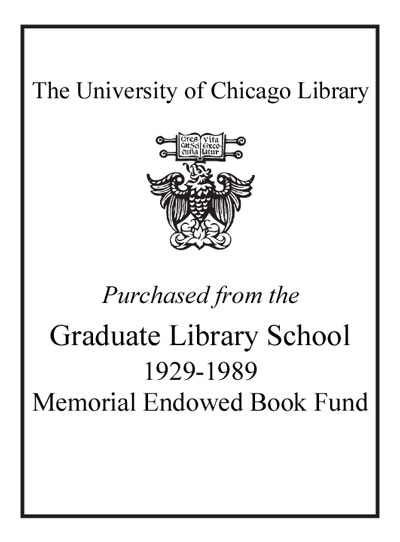|
|
|
|
| LEADER |
00000cam a2200000 i 4500 |
| 001 |
10042526 |
| 003 |
ICU |
| 005 |
20141112131503.9 |
| 008 |
121203s2014 enkabf b 001 0 eng d |
| 020 |
|
|
|a 9781849043113
|
| 020 |
|
|
|a 1849043116 (paperback)
|
| 035 |
|
|
|a (OCoLC)821263231
|
| 040 |
|
|
|a ERASA
|b eng
|e rda
|c ERASA
|d OCLCO
|d UKMGB
|d YDXCP
|d NhCcYBP
|
| 050 |
|
4 |
|a DS392.2.K3
|b G39 2014
|
| 082 |
0 |
4 |
|a 954.91/83053
|2 23
|
| 100 |
1 |
|
|a Gayer, Laurent,
|e author.
|0 http://id.loc.gov/authorities/names/n2008057742
|1 http://viaf.org/viaf/17554043
|
| 245 |
1 |
0 |
|a Karachi :
|b ordered disorder and the struggle for the city /
|c Laurent Gayer.
|
| 264 |
|
1 |
|a London :
|b C. Hurst & Co. (Publishers) Ltd.
|c 2014.
|
| 300 |
|
|
|a xxv, 336 pages, 16 unnumbered pages of plates :
|b illustrations, maps ;
|c 22 cm
|
| 336 |
|
|
|a text
|b txt
|2 rdacontent
|0 http://id.loc.gov/vocabulary/contentTypes/txt
|
| 336 |
|
|
|a still image
|b sti
|2 rdacontent
|0 http://id.loc.gov/vocabulary/contentTypes/sti
|
| 336 |
|
|
|a cartographic image
|b cri
|2 rdacontent
|0 http://id.loc.gov/vocabulary/contentTypes/cri
|
| 337 |
|
|
|a unmediated
|b n
|2 rdamedia
|0 http://id.loc.gov/vocabulary/mediaTypes/n
|
| 338 |
|
|
|a volume
|b nc
|2 rdacarrier
|0 http://id.loc.gov/vocabulary/carriers/nc
|
| 504 |
|
|
|a Includes bibliographical references and index.
|
| 520 |
8 |
|
|a With an official population approaching fifteen million, Karachi is one of the largest cities in the world. It is also the most violent. Since the mid- 1980s, it has endured endemic political conflict and criminal violence, which revolve around control of the city and its resources (votes, land and bhatta - 'protection' money). These struggles for the city have become ethnicised. Karachi, often referred to as a 'Pakistan in miniature,' has become increasingly fragmented, socially as well as territorially. Despite this chronic state of urban political warfare, Karachi is the cornerstone of the economy of Pakistan. Gayer's book is an attempt to elucidate this conundrum. Against journalistic accounts describing Karachi as chaotic and ungovernable, he argues that there is indeed order of a kind in the city's permanent civil war. Far from being entropic, Karachi's polity is predicated upon organisational, interpretative and pragmatic routines that have made violence 'manageable' for its populations.
|
| 610 |
2 |
0 |
|a Muttahida Quami Movement.
|0 http://id.loc.gov/authorities/names/no2002033951
|
| 650 |
|
0 |
|a Ethnic conflict
|z Pakistan
|z Karachi.
|
| 650 |
|
0 |
|a Political violence
|z Pakistan
|z Karachi.
|
| 650 |
|
0 |
|a Ethnicity
|z Pakistan.
|
| 650 |
|
0 |
|a Muhajir (Pakistani people)
|x Politics and government.
|
| 651 |
|
0 |
|a Karachi (Pakistan)
|x Politics and government.
|
| 610 |
2 |
7 |
|a Muttahida Quami Movement.
|2 fast
|0 http://id.worldcat.org/fast/fst00771417
|0 http://id.worldcat.org/fast/771417
|
| 650 |
|
7 |
|a Ethnic conflict.
|2 fast
|0 http://id.worldcat.org/fast/fst00915943
|
| 650 |
|
7 |
|a Ethnicity.
|2 fast
|0 http://id.worldcat.org/fast/fst00916034
|
| 650 |
|
7 |
|a Muhajir (Pakistani people)
|x Politics and government.
|2 fast
|0 http://id.worldcat.org/fast/fst01028706
|
| 650 |
|
7 |
|a Political violence.
|2 fast
|0 http://id.worldcat.org/fast/fst01069902
|
| 651 |
|
7 |
|a Pakistan.
|2 fast
|0 http://id.worldcat.org/fast/fst01210275
|
| 651 |
|
7 |
|a Pakistan
|z Karachi.
|2 fast
|0 http://id.worldcat.org/fast/fst01206375
|
| 903 |
|
|
|a HeVa
|
| 929 |
|
|
|a cat
|
| 999 |
f |
f |
|i 904f52a7-f5cc-5d4f-a60e-2c3a3a2415d3
|s a3c3d1a6-7afe-5283-b395-0d9fc344b279
|
| 928 |
|
|
|t Library of Congress classification
|a DS392.2.K3 G39 2014
|l JRL
|c JRL-Gen
|i 8160852
|
| 927 |
|
|
|t Library of Congress classification
|a DS392.2.K3 G39 2014
|l JRL
|c JRL-Gen
|e GLSM
|b 110556834
|i 9307303
|

